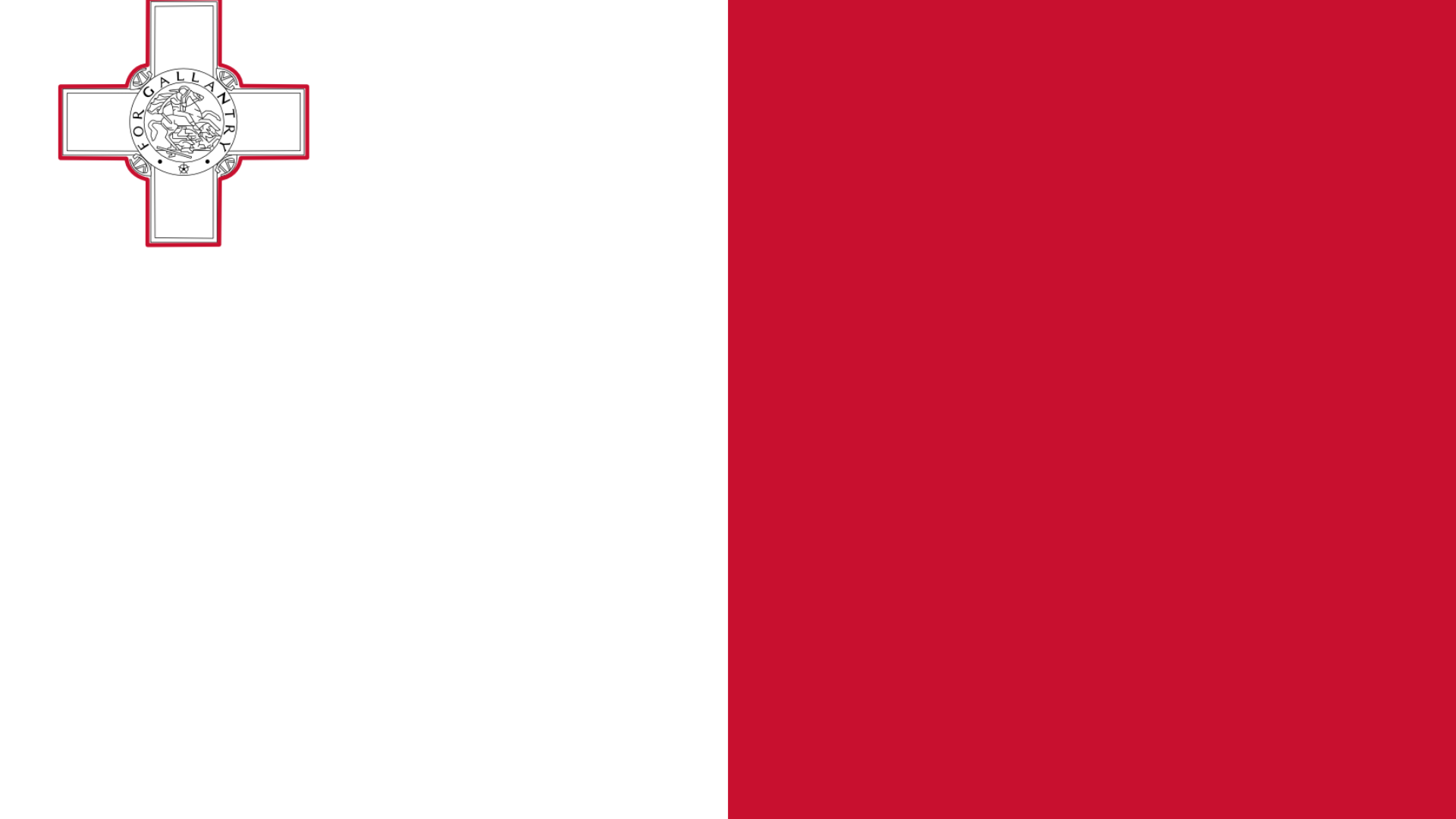Malta
Explore the advantages of Malta as a Decentralized Autonomous Organizations (DAOs) jurisdiction.

Updated 10th November 2023*
This post is part of our research on DAO-friendly global jurisdictions.
Malta Innovative Technology Arrangements and Service Act
https://legislation.mt/eli/cap/592/eng/pdf
Additional References:
- https://www.hklaw.com/en/insights/publications/2018/08/malta-technology-arrangements--the-return-of-the-d
- https://www.coindesk.com/markets/2018/07/04/among-blockchain-friendly-jurisdictions-malta-stands-out/
Overview of Jurisdiction:
The Maltese legislation provides a detailed framework for innovative technology arrangements, including decentralized autonomous organizations (DAOs), under the Innovative Technology Arrangements and Services Act. Here's an overview of the jurisdictional aspects based on the extracted content:
- Recognition and Certification: The Malta Digital Innovation Authority (MDIA) can certify various innovative technology arrangements for specified purposes. These certifications are based on qualities, features, attributes, behaviors, or aspects determined by the Authority. An entity seeking recognition must provide comprehensive information and documentation to demonstrate suitability. Once certified, the arrangement must adhere to all conditions prescribed by the Act and MDIA Act.
- Register of Recognitions: The MDIA maintains an electronic register of all recognitions, publicly available on its website. This register includes details necessary to identify the applicants and their activities.
- Service Provider Registration: The MDIA can register providers for innovative technology services. These registrations are subject to guidelines established by the Authority, including international service standards. Like technology arrangements, service providers must comply with operational and compliance obligations.
- Duty to Notify Changes: Holders of certifications or registrations must inform the MDIA of any material changes in their operation or structure. This includes changes in software, user rights, technical administrator powers, and governance-related alterations.
- Roles and Powers of Resident Agent: A resident agent must be appointed if the applicant is not ordinarily resident in Malta. This agent acts as a communication channel with the MDIA, files necessary documents, and serves as a judicial representative in Malta.
- Renewals and Fees: Holders of innovative technology authorizations must renew their certifications and registrations by providing updated information and paying the prescribed fees.
- Regulatory Power of the Minister: The Minister, advised by the MDIA, has the power to make regulations to implement provisions of the Act, including matters related to certifications, registrations, fees, and establishing guidelines for service providers.
The Maltese framework sets out a comprehensive jurisdictional structure for overseeing and regulating innovative technology arrangements, emphasizing transparency, compliance, and accountability while providing mechanisms for innovation and technological advancement to thrive within a regulated environment.
Legal Frameworks:
The legal framework for regulating Decentralized Autonomous Organizations (DAOs) in Malta is set out in the Innovative Technology Arrangements and Services (ITAS) Act. Here are the detailed requirements and legal protections offered by the regulation:
Requirements for establishing a DAO in Malta:
- Any person wishing to obtain recognition for an innovative technology arrangement, such as a DAO, must apply to the Malta Digital Innovation Authority (MDIA) using the prescribed forms or, if none, an application in writing that provides all required information.
- The applicant must provide comprehensive information, documentation, and assurances as required by the MDIA to assess the application's suitability and the innovative technology arrangement's alignment with the Act's requirements.
- Once recognised, the applicant must comply with all conditions prescribed by the ITAS Act, the MDIA Act, applicable regulations, and other regulatory instruments in force for as long as the recognition remains in effect.
- The MDIA may certify DAOs for specified purposes regarding their qualities, features, attributes, behaviours, or aspects as determined by the authority and stated in the certification.
- Specific requirements for certification include the DAO being fit for the declared purposes and possessing the declared qualities, attributes, features, etc. If the DAO is owned or controlled by a legal organization, its administrators and significant shareholders must be fit and proper persons.
- The software underlying the DAO must be reviewed by a registered systems auditor independent of the DAO's owners or operators, and the MDIA must be provided with positive assurance regarding the DAO's compliance with the Act's rules and regulations and any guidelines issued by the MDIA.
Legal protections offered by the regulation:
The Act establishes rigorous standards for legality, integrity, transparency, compliance, and accountability, reflecting the principles of both the ITAS Act and the MDIA Act. These include:
- Certification processes that ensure DAOs meet high standards of security and functionality.
- Continuous compliance with the ITAS Act and other relevant Maltese laws.
- System auditors must review and verify that the DAO adheres to the required standards.
- The establishment of guidelines by the MDIA for maintaining certifications includes regular reviews to ensure ongoing compliance with the set standards.
In conclusion, the Maltese legal framework provides a structured and comprehensive approach to recognizing and regulating DAOs, ensuring that they operate within a clearly defined legal environment that supports innovation while maintaining high standards of operation and governance.
Benefits and Challenges:
Benefits:
- Legal Recognition: Malta’s ITAS Act allows organizations without legal personality, such as DAOs, to gain recognized legal status. This is significant as it provides a framework for these entities to operate legitimately within the legal system.
- EU Member State Compliance: As Malta is an EU member state, other EU countries may be obligated to recognize Maltese-registered DAOs as legal entities, which could allow these organizations to buy and sell property and engage in business across the EU.
- Innovation in Organization: The legislation supports the creation of new forms of non-corporate social and economic organizations, potentially revolutionizing how businesses and societies organize themselves.
- Advancements in Technology Integration: The regulation could facilitate the integration of the Internet of Things and AI-based autonomous systems into the legal and economic fabric, spurring innovation and development.
Challenges:
- Regulatory Response: There is uncertainty about how other European and global regulators will respond to Malta's initiative. The harmonization of such legislation across different jurisdictions can be complex.
- Consumer Protection and Liability: The European Commission is already grappling with the legal issues surrounding AI and robotics, particularly concerning consumer protection and liability for damages.
- Security Risks: The first DAO's failure due to a hack that led to significant financial loss highlights the security risks inherent in such systems. Ensuring robust security measures is critical.
- Governance Issues: DAOs, by their nature, have little or no human governance. This presents unique challenges in terms of accountability and decision-making processes.
- Technological Infrastructure: The text mentions the necessity for Malta’s Digital Innovation Authority (MDIA) to audit smart contracts, indicating the need for strong technical administration and oversight.
- Speculative Nature: The concept of DAOs is still new, and there are many speculations about their future. This uncertainty can pose challenges for both regulators and participants in the market.
Case Studies:
- LEASEHOLD
*Please note that the information in this post is for informational purposes only. It should not be construed as legal, tax, investment or other advice.*
